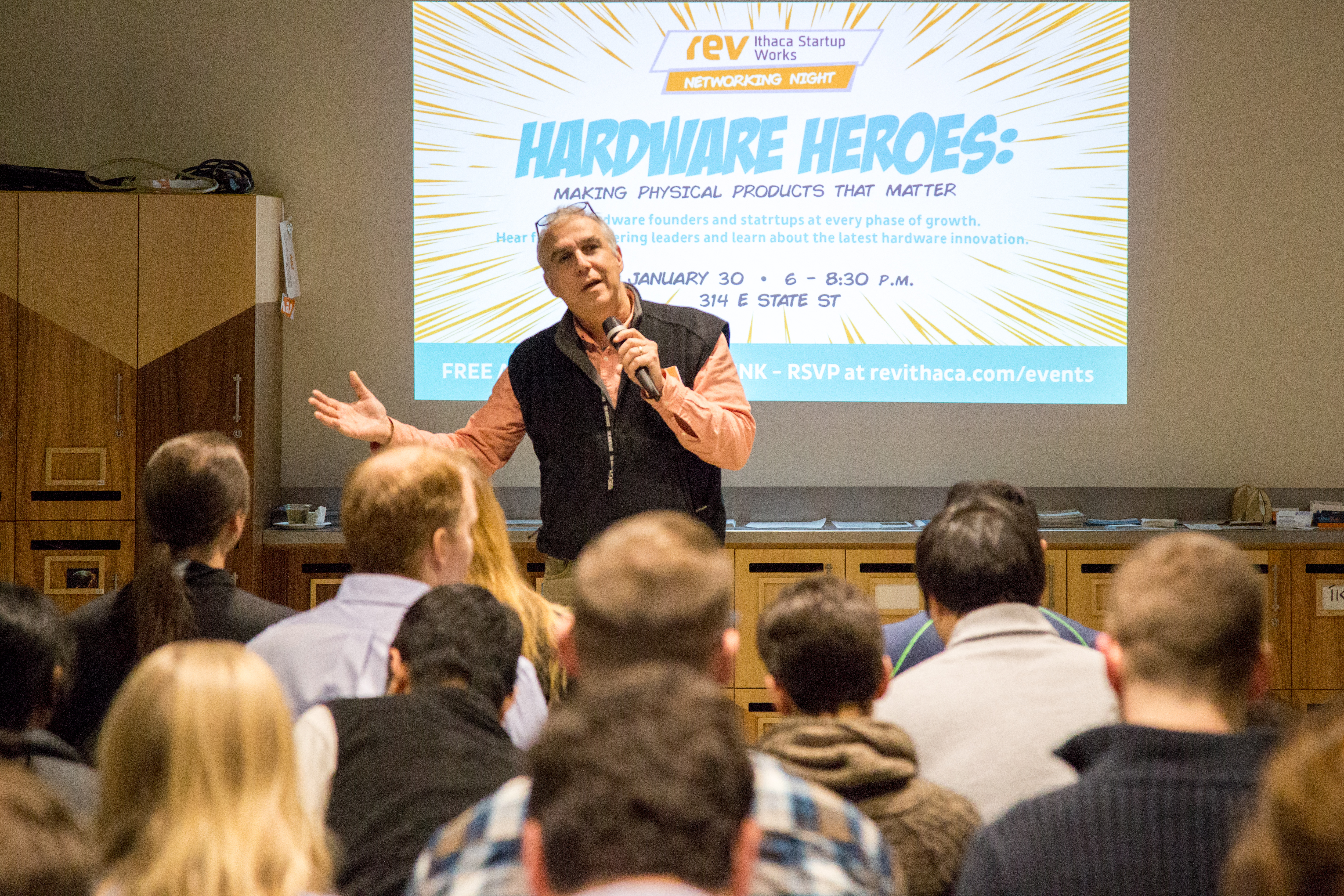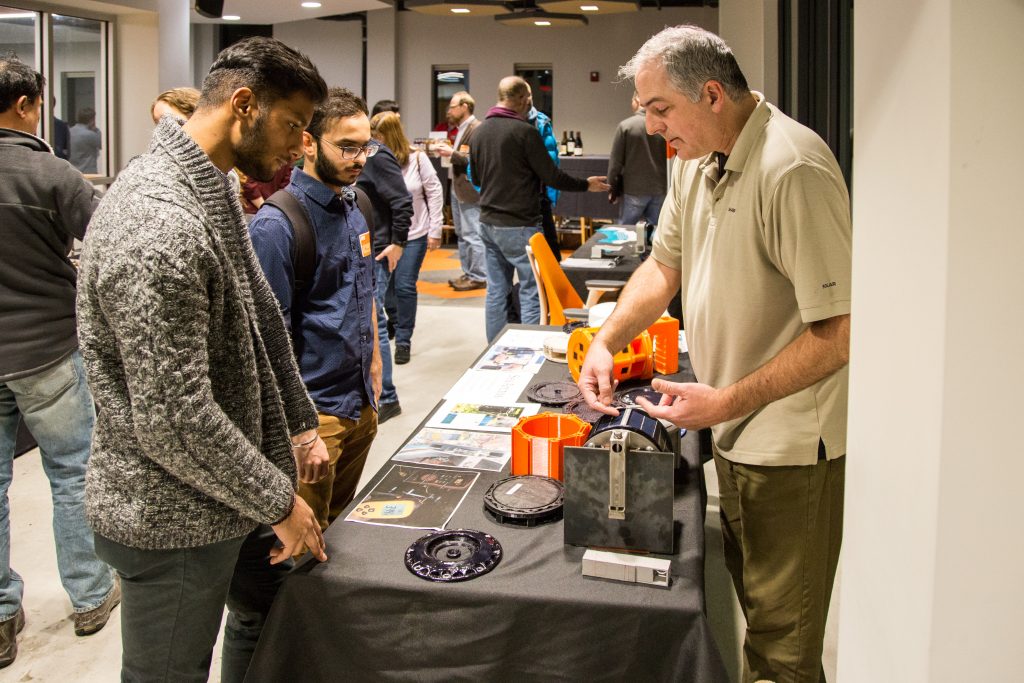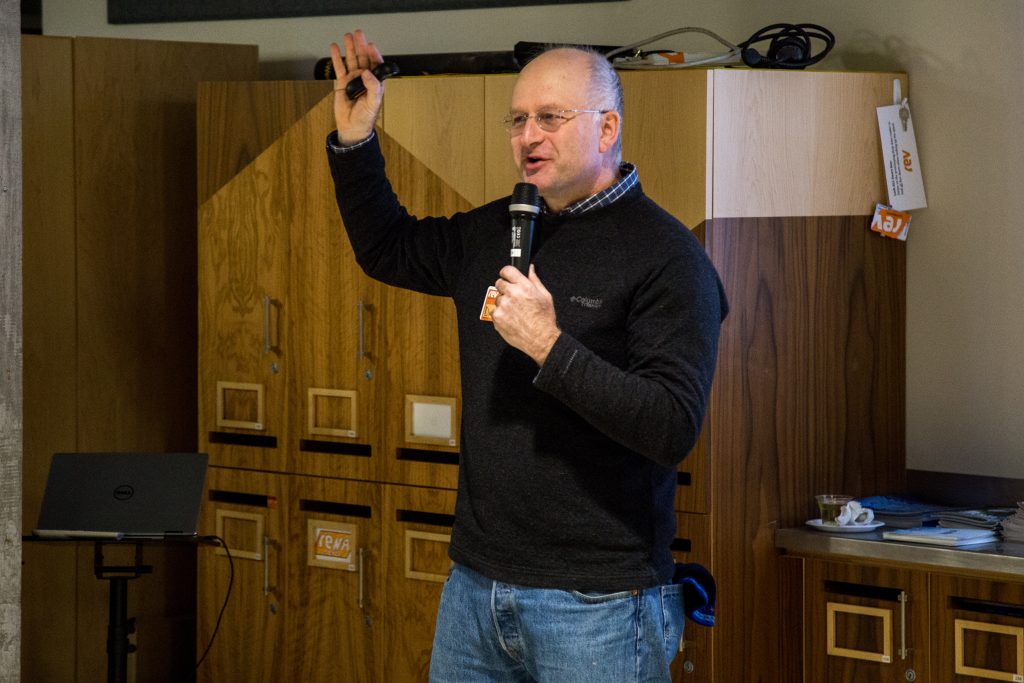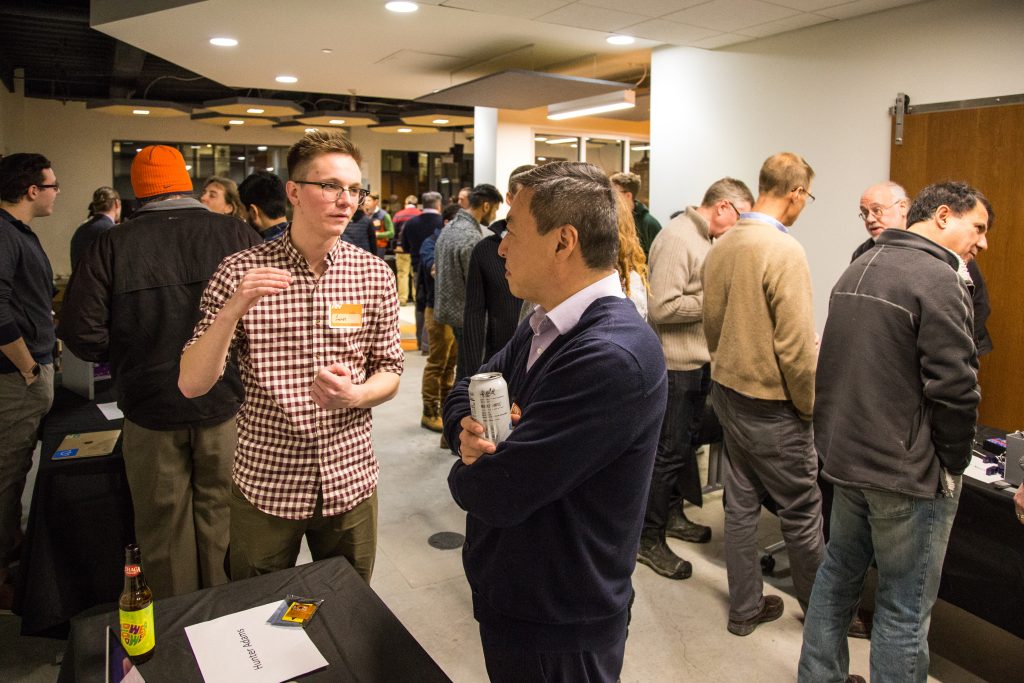
January Networking Night: Donning Winter Wear to Learn Hardware
By Casey Verderosa
Subzero temperatures didn’t prevent a great turnout for Rev’s January 30thNetworking Night, the theme of which was Hardware Heroes. Guests enjoyed a delicious spread catered by Greenstar as they examined hardware created by startup founders and connected with them about their products and experiences.


Startups which revolve around a hardware product face particular challenges. How many iterations will it take to get your product just right? What if you get it right, but then need to make drastic changes to better suit your market? Will you need to make more modifications as you scale up?
A panel of startup founders, moderated by Rev director Ken Rother, was there to answer these questions.
Air Quality Egg


Dirk Swart, CEO of Wicked Device, produces the Air Quality Egg, a monitor that measures a user’s air quality. Data from all Eggs are shared on Wicked Device’s platform, which any Egg user can access in real time, from anywhere in the world.
The Air Quality Egg is now helping students around the world not only monitor their air, but also learn how to analyze and share data globally. The product went through much fine tuning and prototyping before coming to market.
Connexus
Brandon Hudson’s first company was based on hardware that performed water-to-water geothermal control. After building his business and his brand, he realized he had maxed out his market. What to do next? “It’s hard to invest lots of time in something and then have to pivot,” he said.
But pivot he did. Now Hudson is CEO of Connexus, a building management system for remote and streamlined HVAC control and monitoring. Connexus won NYSERDA’s 2018 76West Competition, designed to boost clean energy businesses in New York’s Southern Tier region.
Monarch
For Hunter Adams ’15, M.S. ’17, Ph.D. ’19 , the challenge wasn’t a matter of coming up with new hardware entirely, but changing its intended use. He had thought his small sensor-and-radio chips, called Monarch, would be launched into space six or seven hundred at a time, but through Cornell University’s Commercialization Fellows program, Adams realized the Monarch’s most promising application was in vineyards.


There, they can be used to measure temperature and humidity. In a place like Ithaca with great changes in elevation, it’s an advantage for vintners to use these chips to pinpoint conditions by placing them throughout the vineyard, rather than relying on local weather stations, which could be many miles away. Having such specific data can help vintners determine whether to spray certain areas rather than the entire vineyard to prevent certain diseases or fungi from ruining crops.
Individuals looking to test the viability of their own hardware-based business ideas are encouraged to apply to Rev’s Hardware Accelerator program, to begin summer 2019. Upcoming Info sessions include February 5 at 6:30 p.m. at Cornell University, eHub Kennedy Hall and on February 8, noon to 1:00 p.m. at Binghamton University, University Union Room 111.[
For more information and info session dates for Rev’s newest program, Hardware Scaleup, email [email protected].
Please join us for next month’s Networking Night, The Future of Clean Energy, on February 21 at 6:00 p.m.
